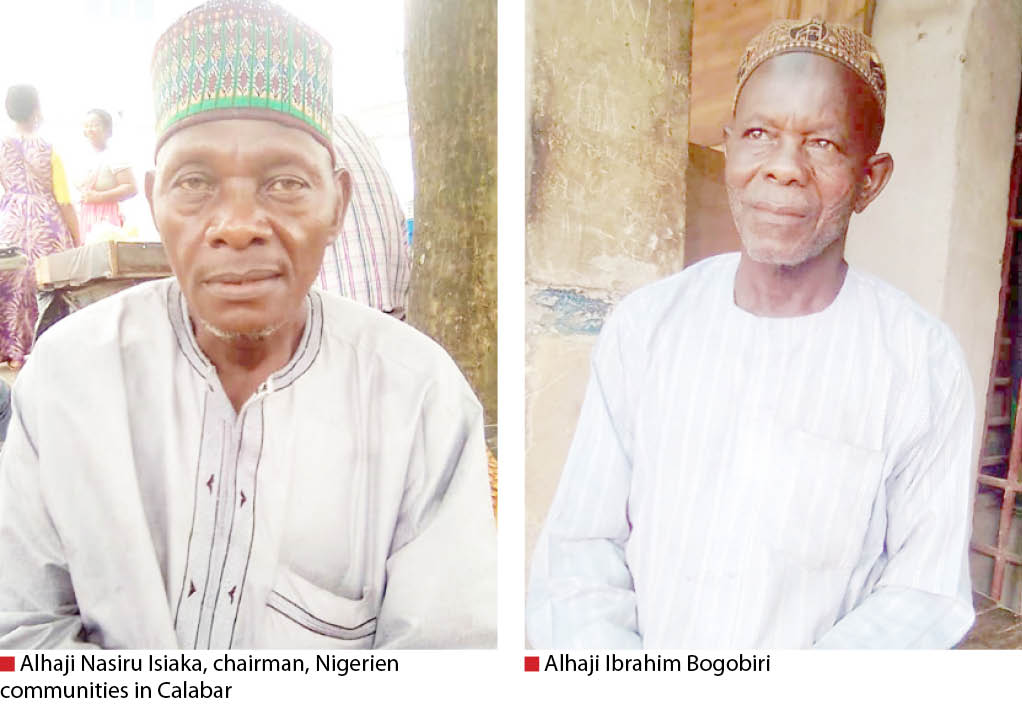Due to the heteregeneous nature of Nigeria, citizens find themselves settling in difficult communities and localities other than theirs. However, the case is different with the Hausa and Fulani residing in Calabar as they have gradually settled down to become part of the communities in all ramification. Daily Trust Saturday spoke to some Hausa/Fulani in Calabar.
Increasing number of northern Nigerians living in Calabar are embracing the local culture and language of their host communities. They speak Efik and other dialects, own properties and marry local women while their children and grandchildren have mastered the art of speaking the local languages like typical natives.
- Humanitarian crisis worsens in Niger as IDPs troop to state capital
- JUST IN: Saudi lifts COVID-19 restriction after two years, says one million Muslims to perform 2022 hajj
These sets of Nigerians, earning their living, reside in Calabar, Ikom, Ogoja and other hamlets in Cross River State.
In the southern part of the state, they have two bubbling settlements with local heads and councils. One in Bogobiri, another in Nasarawa communities in Calabar South LGA and Calabar Municipality respectively.
In Bogobiri, for instance, both Fulani and Hausa, including a large number of Nigeriens have settled here for nearly one hundred years. They control almost 50 per cent of palm oil business with a depot in Bogobiri.
Except for the traditional wears usually associated with Nigerians of northern origin, the younger generation of Hausa and Fulani in Calabar are more like the natives, especially if they choose to appear either in Western or Efik outfits.
As a result of the peaceful and friendly dispositions of the Hausa in Calabar, the Efik and other traditional chieftains have also embraced them. Perhaps this accounts for the reason there have hardly been religious or ethnic unrests in the city.
Succeeding governments have worked with them. Gov Ben Ayade, for instance, appointed a good number of them as special advisers and personal assistants.
The government also recognised the Sarki Hausa/Fulani as the spiritual head of the Muslim community in the state.

Helping to consolidate peace
Secretary of northern communities in Cross River State, Alhaji Shaaban Abdullahi, attributes the various appointments to their efforts at consolidating peace and integrating with native communities.
Shaaban has been in the state for over 40 years. First, he spent time in Ikom, before moving to Calabar where he is married with children who have all adapted to local culture and language.
“I can speak the Efik language fluently. That feat enables me to mediate, mingle and integrate well. I am proud that I am able to speak it with dexterity. I have visited local communities which would have been restive but with the ability to speak the local language, God helped me to douse the tension,” he said.
‘I don’t see myself returning to Kano’
Sixty-five-year-old Alhaji Ibrahim Bogobiri, whose father is from Karaye Local Government Area of Kano State said he does not think he would like to return to Kano anymore, having adapted to and become more like an indigene.
The age-old Bogobiri settlement is named after his father, who is reputed to have settled there many years ago. “I can only occasionally visit Kano and return soon enough to Calabar,” he said.
He narrated that the family initially settled in Itaka community before the Civil War. It was the war that led them to Calabar where they have been residing for years.
“We first came to a small community called Itaka. This was before the Civil War. Itaka is near Ikom in Central Cross River.
“It was during the war that the then commander of 3rd Marine Commando, late Brigadier Benjamin Adekunle, led forces to open a road into Calabar. That was when and how we entered the town. Most of those I came with have died.
“I have spent 90 per cent of my lifetime in Cross River State, specifically Calabar. I may not speak Efik with mastery but I understand it very well. My four children and five grandchildren speak the language with total fluency. So, I am more like an indigene now.
“I am very old in Calabar, older than several other settlers. I came when there was only one tiny road in Calabar. There was only one hospital when I came. The few houses then were all bamboo and thatch-roofed houses. Everywhere was farmlands and plantations. But today Calabar is a big, modern city. I have been a trader and suya seller from where Allah blessed me,” he said.
Alhaji Bogobiri said he will remain in Calabar because he has been entrenched there.
He said the town is very peaceful and the natives are very pleased with them, adding that a real Efik man is welcoming and peaceful.
According to him, their weekly prayers in the mosque for peace, unity and progress have largely contributed to the well-being and good relationship between them and the hosts.
A journalist, Musa Kutama, who studied at the University of Calabar has lived in the town for over 30 years.
“I am from Kutama village in Kano State. I understand the Efik language very well. My wife whom I married in Calabar as well as my children who were all born here, can speak the language more than me. I spend fewer number of days in Kano,” he said.
The Chairman of Nigeriens in Calabar, Alhaji Nasiru Isiaka, said he came to Nigeria in 1973 but arrived in Calabar in 1983.
The 75-year-old man said he has no plan to return to Niger Republic because Calabar is peaceful and also good for his business.
“I came to Calabar because of a man who owed me money but ran to the town to hide. I married a woman from Benue State with whom I have five children and grandchildren. Even though I am a Muslim, I will not like to marry four wives or have more children. I didn’t go to school. I want to train my five children to university level. Already, two have graduated.
“My children and wife speak Efik language better than I do. I don’t know if I will ever return to Niger Republic except Allah decides otherwise. This is because I love Calabar for its peaceful ambience,” he added.
They, like other tribes and ethnic groups in the state, look forward to a time when they would be allowed to contest for elective political offices, saying it would allow for better integration.
Ayade commends Hausa/Fulani Community
The governor of the state, Ben Ayade, commended the Hausa/Fulani community for maintaining peace and harmony with their hosts.
He reiterated this in a congratulatory message he personally signed on Thursday, on the emergence of Alhaji Garuba Lawan as the new Sarkin Hausa/Fulani and Head of Muslim Community in Cross River State.
The governor charged the new monarch and spiritual head of Muslims in the state to ensure that peace and harmony reigned at all times “between your subjects and your host communities.”
The governor expressed optimism that the new Sarki will consolidate the confidence-building process embarked upon by his predecessor.
“I have no doubt you will bring your courage, experience, discipline, knowledge and exposure to bear on the throne, thereby deepening the unity, love and harmony amongst the people as upheld by your late father and elder brother who reigned before you. I must say that your father was a unifying factor.
“Your enthronement as the supreme leader of Muslims in Cross River stands on the tripod of morality, religion and leadership of the Ummah, which I consider as a good development to the people of the state and the Islamic faith in particular.”

 Join Daily Trust WhatsApp Community For Quick Access To News and Happenings Around You.
Join Daily Trust WhatsApp Community For Quick Access To News and Happenings Around You.


